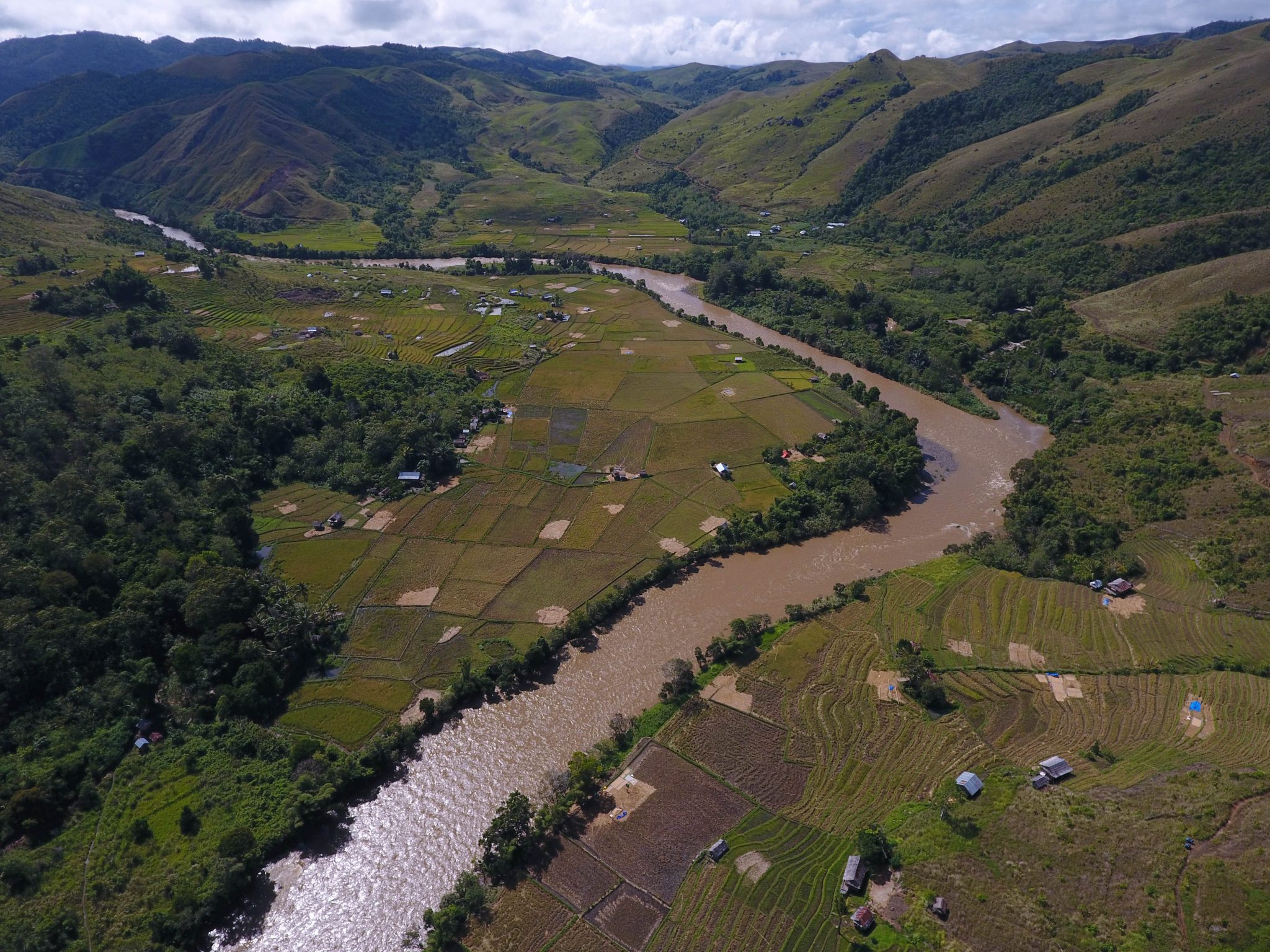The Context
During the DI/TII rebellion (one intending to turn the republic into an Islamic state), a war between the Kahar Muzakar’s troops and the Indonesian Army broke out in Sae – the Ambalong customary territory. All the rice paddies were abandoned as the community fled the area. After the war ended and DI/TII was disbanded, they returned in late 1990s and opened up the land again as they ran out of rice. They had to buy rice in Seko Padang.
“Ginanjar, the Manager of PT Seko Power Prima, once took me in his car, and we were driving down the Embalong’s customary territory up to the Pohoneang’s. I said to him ‘Nowhere can you find rice paddies but in Sae. Please find one around here if you can. It is a mountainous area,’” said R. Kondo Lada’, the Tobaro of the Ambalong. He also noted that Sae and the surroundings are the rice barn of the Ambalong. “These rice paddies are our life. We won’t give the area up to the company to be submerged for the hydroelectric power project. This is the voice of the entire Ambalong given to me,” he said as he was harvesting rice with his community.
The Betue River in Ambalong’s customary territory will be the site where PT Seko Power Prima’s power plant is to be constructed. The water will be diverted to Rattee though three 18-km-long and 8m diameter tunnels to rotate the turbines. The tunnels will cut through the hill, groves, cliffs, cropland and hamlets.
The above is one of the reasons why the Ambalong are rejecting the project. When they brought the company’s surveys into a halt, staged rallies, took down the workers’ tents and dumped the soil and rocks collected into the river, they were sentenced to 7 months in prison. They were convicted on threatening the workers and striking fear into their hearts. Currently, fourteen Seko members are serving time.
Find out more about the #SaveSeko campaign here: https://ifnotusthenwho.me/saveseko/
